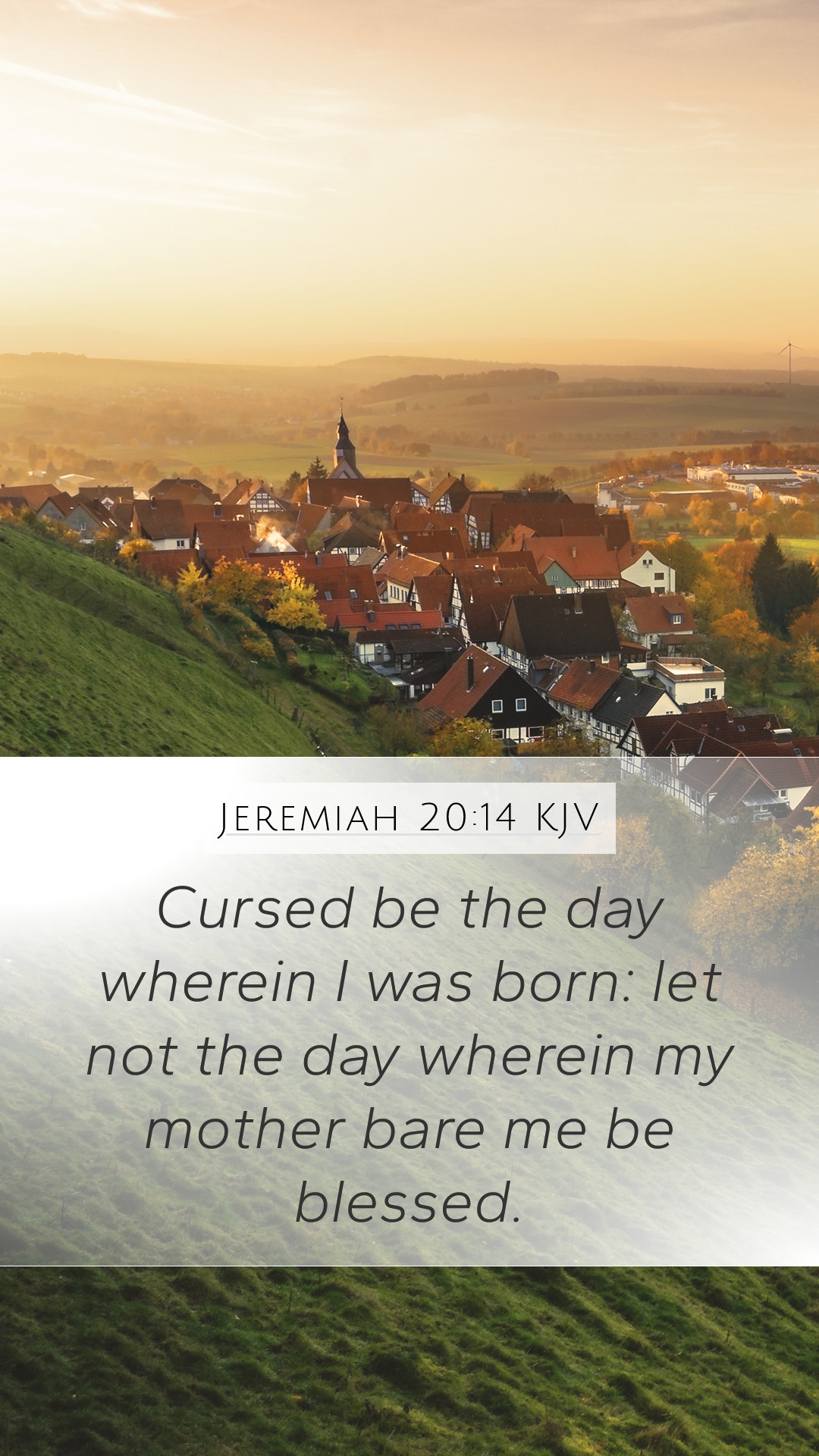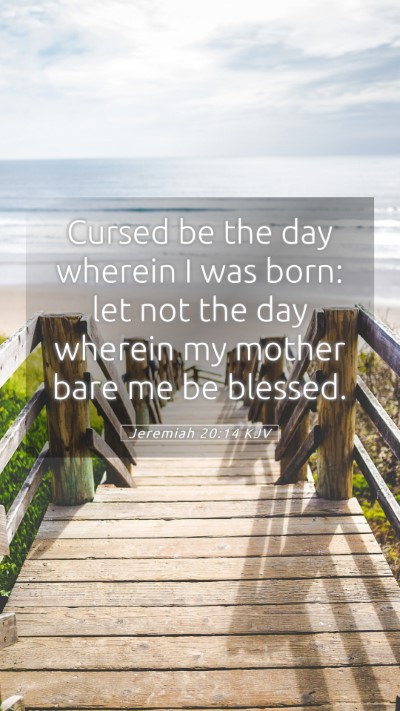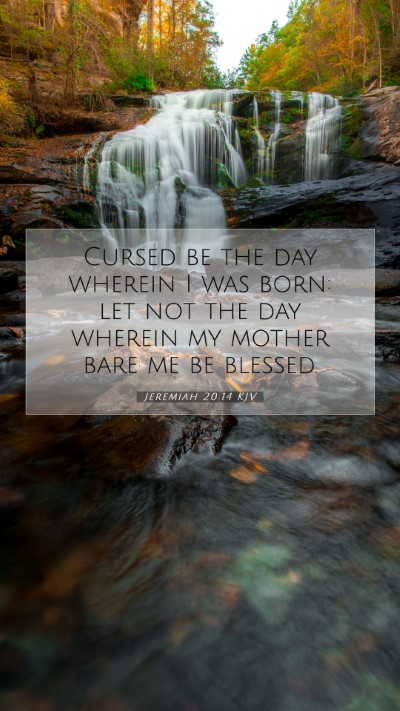Understanding Jeremiah 20:14
In this exploration of Jeremiah 20:14, we delve into its profound meanings and implications as derived from several esteemed public domain commentaries including those of Matthew Henry, Albert Barnes, and Adam Clarke. This verse captures the emotional intensity of the prophet Jeremiah's lamentations and paints a deeper picture of the struggles he faced in his prophetic ministry.
Bible Verse
Jeremiah 20:14 (KJV): "Cursed be the day wherein I was born: let not the day wherein my mother bare me be blessed."
Context and Historical Background
Understanding the Context: The Book of Jeremiah is a collection of prophecies from the prophet Jeremiah, addressing the people of Judah before the Babylonian exile. This verse expresses the deep despair and frustration Jeremiah feels in the face of relentless opposition and misunderstanding from his own people. It emphasizes the heavy burden of prophetic duty.
Significance of the Passage:
- This verse reflects Jeremiah's deep emotional pain and isolation. His candid expression of wishing he had never been born highlights the trials faced by prophets.
- It serves as a reminder of the human experience of pain and the struggle with despair.
- It invites readers to consider the broader themes of suffering, identity, and God's calling in confusing and difficult circumstances.
Commentary Insights
Matthew Henry's Commentary: According to Henry, Jeremiah's lamentation reveals the challenges of prophetic ministry. He argues that prophets are often subjected to great trials that challenge their faith and resolve. The use of 'cursed' reflects the severity of Jeremiah's emotional state, indicating that he felt abandoned both by God and by those he served.
Albert Barnes' Notes: Barnes emphasizes Jeremiah's feeling of betrayal and the weight that comes with a prophetic calling. He notes that such declarations of frustration are not uncommon among those who bear heavy burdens for God. This illustrates a profound honesty in discussing our struggles, which enables deeper insight into biblical characters and their contexts.
Adam Clarke's Commentary: Clarke explains that the phrase “let not the day wherein my mother bare me be blessed” suggests a yearning for relief from suffering. He indicates that this is a moment of human vulnerability for Jeremiah, who felt the pain of his prophetic role weighed heavily upon him. The prophet grapples with a sense of futility in his calling, expressing the tension between divine purpose and human sorrow.
Biblical Exegesis and Theological Reflections
This passage intrigues Biblical scholars as it raises questions about God's purposes in human suffering. The heavy feelings of Jeremiah may lead one to explore:
- The nature of divine calling and the cost associated with it.
- The importance of lamentation in a faith context, providing a framework for honest expression of grief.
- How suffering can lead to deeper insights about one’s faith and relationship with God.
Application of Jeremiah 20:14
Practical Applications: For modern readers and believers, understanding Jeremiah 20:14 can provide valuable lessons on dealing with personal crises. The following applications emerge:
- Recognizing Emotions: It is important to acknowledge feelings of despair and frustration. The Bible validates these emotions rather than dismissing them.
- The Role of Prophetic Voice: Engaging in community and being a voice for justice may carry immense weight. Understanding Jeremiah's struggles can deepen one's empathy for those bearing burdens today.
- Seeking Support: In moments of deep sorrow, the need for community support becomes evident. Just as Jeremiah expressed his feelings, so should we reach out for guidance and understanding.
Cross References
This verse can be related to various other passages for deeper theological reflection:
- Job 3:1-3: Job curses the day of his birth in a similar expression of anguish.
- Psalm 139:13-16: A contrasting perspective that celebrates God's involvement in our creation.
- Isaiah 49:1: God positions prophets with care, suggesting they have divine purpose despite worldly suffering.
Conclusion
In summary, Jeremiah 20:14 captures profound emotional turmoil faced by the prophet, which resonates through ages. Its rich context enriches our understanding and calls us to approach Scripture with honesty during our own trials. Each commentary offers layered insights that deepen our understanding of the complexities involved in prophetic ministry and personal suffering.
Through this verse, we are reminded of the significance of sharing our truths, the importance of lament, and the assurance that even those called by God can experience deep moments of despair. As we reflect on making sense of our own sufferings in light of Scripture, we gain valuable Bible study insights that encourage us to seek understanding in the midst of our struggles.


